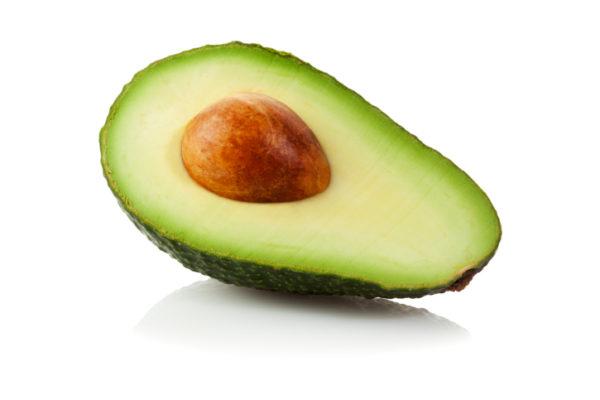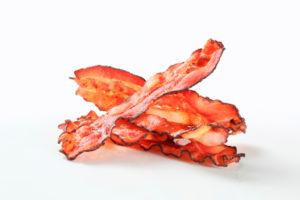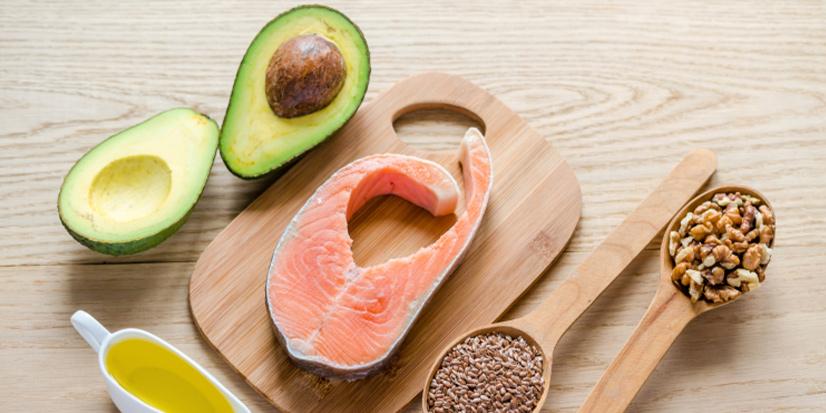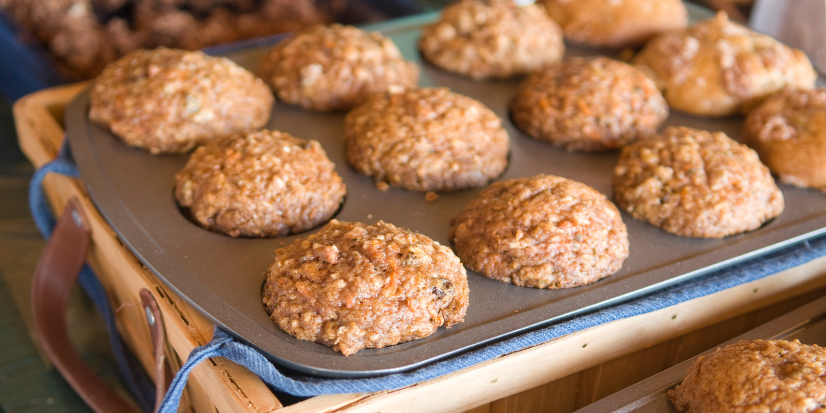Fat is certainly a buzzword in today’s conversations about nutrition. Does eating fat make us fat? Do we need to eat fat to burn fat? Is saturated fat actually good for us?

You Need Fat to Function
A certain amount of fat is essential for your brain and heart to function. Most national health organizations recommend that 20-35 percent of our calories come from fat. So it is important to get some fat each day—preferably a little with each meal. We often eat fat with each meal anyway because high-fat foods taste good and are common in the American diet, but we don’t always choose heart-healthy fats. By including healthy sources of fat with your meals and snacks more often, you can set yourself up for excellent heart, brain, and total body health.
Healthy Fats
Almost all of the healthy fats in our diet come from plants. Healthy omega-3 fats are found in certain fish, especially salmon and sardines (serving size 3 oz). A serving of fat is smaller than a serving of carbohydrates because fat is more calorie-dense. Examples of healthy fat sources to include in a meal or eat as a snack include:
- One palm-full of nuts or seeds
- 1 Tbsp of nut butter
- Half an avocado
- A handful of olives
- 2 tsp of olive oil
- 3 oz. of salmon

Not-So-Healthy Fats
Though you may have heard otherwise in popular news or science articles, the overwhelming consensus is that liberal consumption of saturated fat may harm us. Common sources of saturated fat are high-fat meats and dairy products such as bacon, sausage, ground beef, brisket, skin-on poultry, lard, butter, cheese, and cream, as well as coconut and palm fruit oils. Even more, the World Health Organization recently released information on processed meats, many of which contain these “bad fats,” and their association with certain cancers.
But, saturated fat isn’t the only fat we need to watch for. Trans fat has been shown to be even worse than saturated. Trans fat is a product of food industry science found in several processed foods and has a very strong negative effect on cholesterol levels. The simplest way to avoid trans fat is to eat less processed foods. Common sources of trans fat include:
- Packaged doughs, mixes, baked goods, and snacks
- Margarine, frosting, and non-dairy creamers
- Frozen dinners
- Asian crunchy noodles
- Fried foods
- Any foods with “partially hydrogenated oil” as an ingredient
This list is long and can be overwhelming. When shopping, keep your eye out for brands that advertise “0 grams of trans fat” to avoid this cholesterol culprit.
Benefits of Eating Fats
Hearing the grim news on bad fats can cause you to want to avoid all fats just to be safe. But, that’s not the best way to go. Healthy fats can have great benefits like these when made part of a complete diet:
1. Control your weight and blood sugar
Consuming fat with a meal slows the digestion of your food, meaning your body gets a long-lasting fuel so you’ll stay satisfied for longer. If you are living with diabetes, eating meals containing healthy fat can help with blood sugar control.
2. Decrease risk of cardiovascular disease
Healthy fats can improve your cholesterol and triglyceride levels when they replace less-healthy fats and processed carbohydrates. This in turn decreases your risk of cardiovascular diseases, such as heart attack and stroke.
3. Fight inflammation
Omega-3 fatty acids are anti-inflammatory. By eating sources of omega-3, especially salmon, sardines, and other cold-water fish, you’ll be helping to protect your entire body from damage. Walnuts, hemp, chia, and flax seeds are also good sources of omega-3.
4. Healthy fats are nutrient-rich
Plant-based sources of fat are rich in Vitamin E and offer a bevy of other vitamins, minerals, and other healthful compounds to keep your body functioning optimally. Fat is also necessary for the absorption of certain vitamins: A, D, E, and K.
If you pay attention to national media, you’ll likely be confused about fat. Some sources claim carbohydrates are the enemy, and any kind of high-fat is a good thing to include in your diet. Bring on the bacon, eggs, and butter! Others strike fear into our hearts with claims like “eating fat makes you fat,” and proclaim we should cut as much of it out as possible. The truth, as far as we know, is somewhere in the middle. Fat slows down the digestion of our meals, making us feel fuller longer–especially fats with fiber or protein in them. For a good visual of a healthy balance, check out this write-up on the OmniHeart diet.
The best way to enjoy high-fat foods is by including them throughout the day in moderation. Low-fat diets are not necessary and may even be detrimental to your health and your energy level. So, remember, fat is your friend, as long as it’s the healthy kind.
Learn how our team of registered dietitians can help you live a healthier lifestyle.







